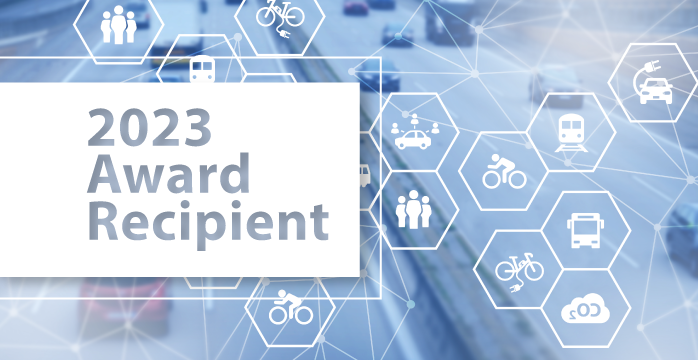Over 1700 startups along with technology companies are expected to disrupt automotive industry, finds Frost & Sullivan’s Mobility team
London – April 4, 2017 – From connected cars, Internet of Things (IoT), autonomous technologies, and the impact of smartphones on in-vehicle experience to intensifying regulatory and safety mandates, the automotive industry is facing unprecedented disruption. Original equipment manufacturers (OEMs) and Tier 1 suppliers are fast realising that software investments must take center stage. Early adoption is crucial to strengthen their position in an expanding ecosystem. However, selecting the most suitable incremental technologies that optimise valuable resources will be the clinching factor for success.
Digital Transformation of the Automotive Industry, recent research from Frost & Sullivan’s Future of Mobility Growth Partnership Service program, finds that digitalisation spending will transform the component hardware-driven automotive industry into one focused on software and solutions will rise rapidly and reach $82.01 billion in 2020. The study explores business activities, process improvements, and the development of competencies and business models across five key pillars: connected supply chain; industrial IoT(IIoT) and Industry 4.0; connected and autonomous cars; digital retailing; and mobility-as-a-service (MaaS).
To know more about Frost & Sullivan’s research and to sign up for our Growth Strategy Dialogue, a complimentary one-hour interactive session with Frost & Sullivan’s thought leaders, please go to https://goo.gl/bD9MnN.
“Digital transformation will affect the entire automotive value chain, including design, production, distribution and retail, reshaping the traditional automotive business model. New models will consider data, connectivity and customer centricity along with cybersecurity,” said Frost & Sullivan Mobility Senior Consultant Sriram Venkatraman. “As a result, the drivers of digital initiatives will change from CEOs, CIOs and the IT departments; by 2020, Chief Digital Officers will steer the strategic and digital initiatives of OEMs across luxury and economy brands.”
OEMs and tier 1 suppliers will seek partnerships with technology vendors and specialists for cloud computing, cybersecurity, telematics, connectivity and 3D printing solutions. Robert Bosch, Harman International, Continental, Magneti Marelli and Denso are focusing on digital initiatives. OEMs such as Ford, GM, Tesla, Volkswagen and Toyota, which focus on connected cars, autonomous driving, and mobility, must prepare to compete with technology, semiconductor manufacturers and mobility companies.
Other upcoming market developments include:
- Robust upstream and downstream technology investments from automotive companies to realize recurring revenues from new services; IT spend will increase from $37.95 billion in 2015 to reach $168.8 billion in 2025, exhibiting a compound annual growth rate of 16.1 percent
- Investment focus on electric vehicles, new mobility services, multi-modality, artificial intelligence, and autonomous vehicles
- Disruption of automotive industry supply chain as more than 1,700 new digital startups enter the market
- Enhanced security across both horizontal and vertical business layers as businesses integrate IoT and big data analytics
- Country-specific, digital retailing strategy for new/used cars in addition to aftermarket and servicing
“By 2030, the digitalisation roadmap in the automotive industry will move from digital services to car-as-a-service (CaaS) to MaaS, making vehicles an element of a connected living solution,” noted Venkatraman. “Automotive companies adopting custom digital initiatives after thorough analysis will be able to successfully leverage their software investments, access new markets, and easily adopt best practices.”
Other topics recently covered under the Mobility Growth Partnership Service include: Cloud and the Car – Use Cases, Business Models and Impact Analysis; Automotive Industry IT Spending – Key Focus Areas, Trends and Future Outlook; Automotive Dealer Management System (DMS) Market—Growth Opportunities and Digital Transformation, Forecast to 2022; State of Automotive Cybersecurity: Key Trends, Solutions, OEM Activities and Vendor Profiles; Disruptive Satellite Communication in the Automotive Industry; and Strategic Analysis of the Automotive Keyless Access Systems Market.
About Frost & Sullivan
Frost & Sullivan, the Growth Partnership Company, works in collaboration with clients to leverage visionary innovation that addresses the global challenges and related growth opportunities that will make or break today’s market participants. For more than 50 years, we have been developing growth strategies for the global 1000, emerging businesses, the public sector and the investment community. Contact us: Start the discussion
Digital Transformation of the Automotive Industry
K079-18
Contact:
Jana Schöneborn
Corporate Communications – Europe
P: +49 (0)69 77033 43
Twitter: @Frost_Sullivan or @FS_Automotive
Facebook: FrostandSullivan
Linkedin: Future of Mobility – A Frost & Sullivan Forum




